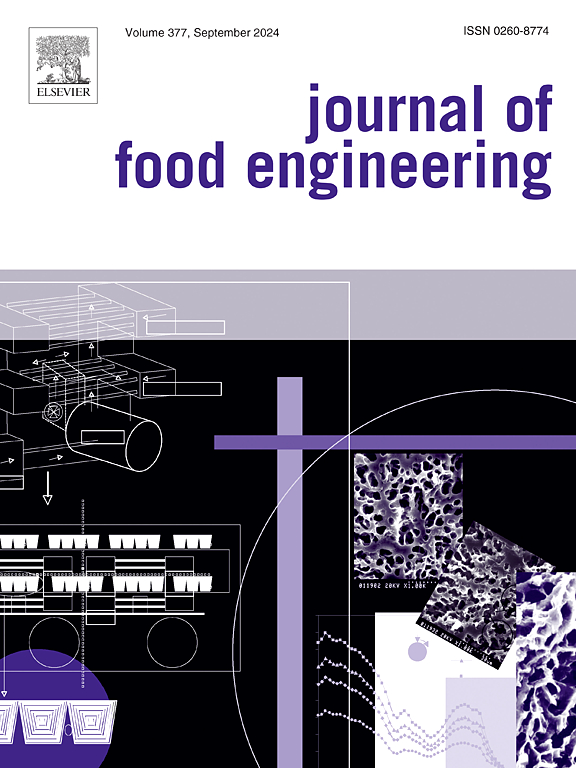Concentration and crystallization of Microbial Xylitol from oil palm empty fruit bunch (OPEFB) using submerged direct contact membrane distillation (DCMD)
IF 5.3
2区 农林科学
Q1 ENGINEERING, CHEMICAL
引用次数: 0
Abstract
Xylitol possess high solubility in water and increase viscosity at high temperature, making the concentration process become challenging. This study demonstrated the applicability of Membrane Distillation (MD) in concentrating xylitol solutions and evaluates its performance at different conditions and feed compositions. MD was capable of concentrating pure xylitol solution to reach the supersaturated condition. However, when Oil Palm Empty Fruit Bunch (OPEFB) hydrolysate fermentation broth was used, fouling was observed due to the presence of impurities, despite the application of feed agitation. The batch crystallization of xylitol were conducted at 5 °C with a seed addition of 0.5–0.8%-wt. Higher seed concentrations were required to induce crystallization in OPEFB hydrolysate due to lower xylitol concentrations and impurity presence. Furthermore, impurities influenced the quality of the crystals, resulting in crystal purities of 98.98% and 94.56% in the synthetic solution and OPEFB hydrolysate, respectively. These findings indicated notable impact of crystallization temperature, seed addition, and impurity on xylitol crystallization.

利用浸没式直接接触膜蒸馏(DCMD)从油棕空果束(OPEFB)中浓缩和结晶微生物木糖醇
木糖醇在水中的溶解度很高,并且在高温下会增加粘度,因此浓缩过程具有挑战性。本研究证明了膜蒸馏(MD)在浓缩木糖醇溶液中的适用性,并评估了其在不同条件和进料成分下的性能。MD 能够浓缩纯木糖醇溶液,使其达到过饱和状态。然而,当使用油棕空果束(OPEFB)水解物发酵液时,尽管使用了进料搅拌,但由于杂质的存在,还是观察到了结垢现象。木糖醇的批量结晶是在 5 °C、种子添加量为 0.5%-0.8%(重量百分比)的条件下进行的。由于木糖醇浓度较低和杂质的存在,需要较高的种子浓度才能诱导 OPEFB 水解产物结晶。此外,杂质也会影响晶体的质量,导致合成溶液和 OPEFB 水解产物的晶体纯度分别为 98.98% 和 94.56%。这些发现表明结晶温度、种子添加量和杂质对木糖醇结晶有显著影响。
本文章由计算机程序翻译,如有差异,请以英文原文为准。
求助全文
约1分钟内获得全文
求助全文
来源期刊

Journal of Food Engineering
工程技术-工程:化工
CiteScore
11.80
自引率
5.50%
发文量
275
审稿时长
24 days
期刊介绍:
The journal publishes original research and review papers on any subject at the interface between food and engineering, particularly those of relevance to industry, including:
Engineering properties of foods, food physics and physical chemistry; processing, measurement, control, packaging, storage and distribution; engineering aspects of the design and production of novel foods and of food service and catering; design and operation of food processes, plant and equipment; economics of food engineering, including the economics of alternative processes.
Accounts of food engineering achievements are of particular value.
 求助内容:
求助内容: 应助结果提醒方式:
应助结果提醒方式:


